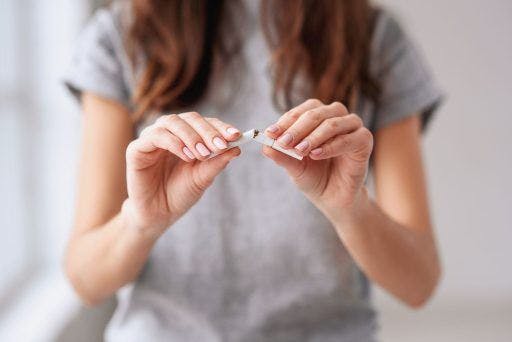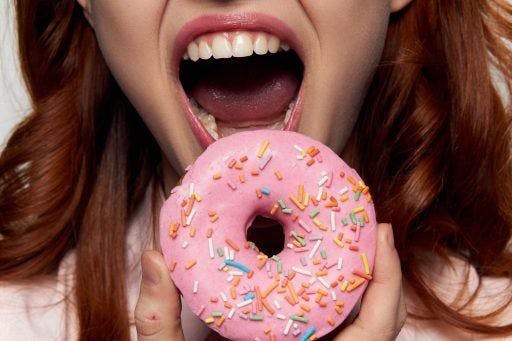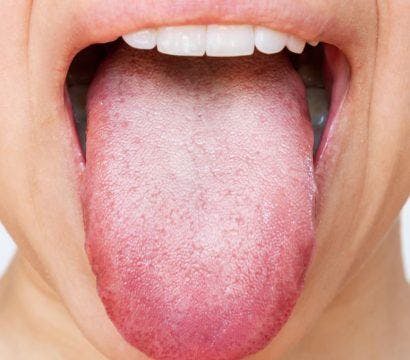People are creatures of habit, but not all those habits are good. Many of them can negatively impact your well-being and lead to unhealthy teeth. Nail-biting, constant snacking, and sporadic dentist visits might seem harmless, but they all have surprising long-term consequences for oral health. Do you have any bad habits you’re desperate to break? Learn what damages teeth the most. These not-so-fun facts might set you straight – especially if you’re trying to perfect your smile.
1. Smoking

Smoking tobacco is infamous for causing halitosis. The practice aggravates dry mouth and leaves behind odour-causing chemical compounds that lead to bad breath. But on top of that, it can also put you at greater risk for oral cancer, gum disease, and other serious health issues.
Better Health Channel points out that smokers are more likely to experience complications after tooth removal and surgery and don’t “heal as well as non-smokers.” According to the Centers for Disease Control and Prevention (CDC), untreated tooth decay is also higher in people who smoke.
2. Biting Your Nails
Onychophagia is the clinical term for compulsive fingernail biting. Most people use it to cope with stress, anxiety, or boredom. The behaviour is common among children and adults experiencing emotional or mental distress. Since its root causes are tough to manage, it’s one of the hardest habits to break. But contrary to what many believe, it’s not a harmless tick.
One study by the Indian Journal of Dental Research found that chronic nail-biting can “cause various malocclusions associated with dentoalveolar segment of the oral cavity.” Specifically, crowding and teeth rotation are common side effects.
In another study published in the International Journal of Women’s Dermatology, researchers emphasise the importance of tackling the habit in curbing bad oral hygiene, preventing chipped or notched teeth, and avoiding inflammation in gums. They suggest seeking social, psychiatric, dermatologic, and dental care support to curb the impulse, especially in children.
3. Frequent Snacking
What else is bad for your teeth? Frequent snacking may affect your saliva’s ability to defend your mouth against harmful acids, resulting in enamel erosion, tooth decay, and dental caries.
As Roseman University of Health Sciences explains it: the acids in carbohydrates (sugars and starches) “leech the minerals out of your teeth and cause cavities.” Snacking nonstop means your teeth are constantly in an acidic environment that your saliva can’t neutralise fast enough.
4. Overdoing Sugar and Fizzy Drinks

By now, everyone should know that sweets spell trouble for teeth. The World Health Organization (WHO) identifies free sugars as “the essential dietary factor in [developing] dental caries.” Fizzy, sugar-sweetened drinks, like soda, are a triple threat of added sugars, carbonation, and acids.
So, if you love saccharine treats and can’t quit them cold turkey, start by cutting your soda intake. Avoid having dessert after every meal, and add fresh produce to your diet for balance. The WHO recommends limiting sugars to “less than 10% of total energy intake” to reduce the risk of cavities.
5. Chewing Ice Cubes
Many people also chew on ice cubes to relieve stress or anxiety. This habit, known as pagophagia, can become compulsive, indicating underlying health conditions. Since ice cubes are incredibly dense and glass-like, they can wreak havoc on your teeth.
Dr Karyn Kahn of The Cleveland Clinic cautions, “It doesn’t take much biting force to fracture a tooth, especially if the tooth has tiny cracks already.” Those with fillings, crowns, and other restorations are particularly vulnerable, given their compromised teeth.
6. Overbrushing and Forgetting to Floss
Every basic dental hygiene routine starts with toothbrushing. But if you don’t do it right, you could be causing more harm than good. Overbrushing, a.k.a. toothbrush abrasion, can lead to sensitivity, enamel erosion, and receding or bleeding gums. Avoid brushing too frequently and with excessive force, and go for soft-bristled brushes which are gentle on teeth and gums.
Also, don’t forget to floss! It’s tempting to brush your teeth aggressively to compensate for not flossing. But both are must-dos for a thorough clean. Flossing lets you get to the plaque and bacteria-causing debris living between teeth. The Australian Dental Association (ADA) suggests flossing daily to prevent gum disease, tooth decay, and halitosis, among other conditions.
7. Skipping Your Dentist Appointments
Oral healthcare experts recommend visiting your dentist at least once a year. The CDC considers it essential for maintaining oral health, even if you no longer have natural teeth. You can count on your dentist to identify potential issues and suggest treatments before those problems worsen.
For example, you might share that you have difficulty cleaning your teeth properly because of malocclusion (teeth misalignment). Or maybe you’re bothered by the crookedness or crowding? These are signs that you need orthodontic treatment – and a professional is the best person to ask for advice in this area.
If you’re wary of wearing anything too obvious but eager to address misalignment, ask them about clear aligners by ClearCorrect. They work like braces while being removable, discreet, and comfortable. They seamlessly slot over teeth and gently push each tooth to its ideal spot. You can pop them off when eating, brushing, or flossing, so there’s minimal disruption to your daily routine.
If bad habits were easy to quit, everyone would be happy and healthy. Truthfully, it takes time and patience to push past them, develop positive habits, and keep unhealthy teeth at bay. Put in the effort but be kind to yourself. You can always start over! Trying means you’re already on the right path, and your oral health is better for it.
References:
Coolick, C. (2023, March 20). Why Chewing Ice Is Bad for Your Teeth. Cleveland Clinic.
Department of Health & Human Services. (n.d.-b). Effects of smoking and vaping on oral health. Better Health Channel.
Flossing. (n.d.). Australian Dental Association.
Institute for Quality and Efficiency in Health Care (IQWiG). (2020, January 16). Misaligned teeth and jaws: Overview. InformedHealth.org – NCBI Bookshelf.
Kauss, A. R., Antunes, M. D. C., Zanetti, F., Hankins, M., Hoeng, J., Heremans, A., & Van Der Plas, A. (2022b). Influence of tobacco smoking on the development of halitosis. Toxicology Reports, 9, 316–322.
Oral Health Tips | Adult Oral Health | Basics | Oral Health | CDC. (n.d.).
Roseman University. (2022, August 25). Snacking & Your Oral Health – Roseman University.
Sachan, A., & Chaturvedi, T. P. (2012). Onychophagia (Nail biting), anxiety, and malocclusion. Indian Journal of Dental Research, 23(5), 680.
Website, N. (n.d.). Dental check-ups. nhs.uk.
Wiegand, A., & Schlueter, N. (2014). The Role of Oral Hygiene: Does Toothbrushing Harm? In Monographs in oral science (pp. 215–219). Karger Publishers.
World Health Organization: WHO. (2017b). Sugars and dental caries. www.who.int.



